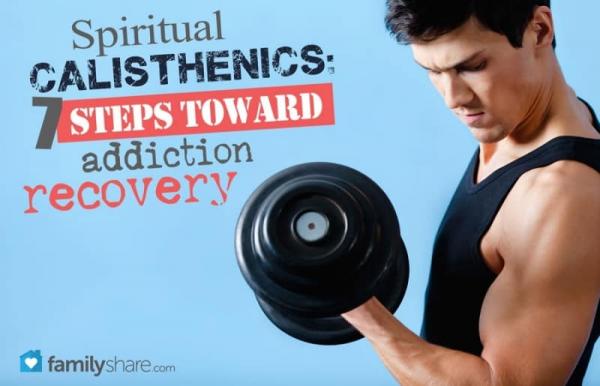
Jen, recovering from addictions to narcotics and alcohol, admits that she tried everything known to man before seeking out a higher power. "While it was the last stop in finding help, it has become life altering. I have learned I must rely on my higher power to keep sober. The more spiritually fit I am, the better chance I have of not taking that next drink or drug."�
Whether it's online shopping, pornography, drinking too much or eating too little, addictions weaken your spiritual muscle mass. Learning to rely on God in the face of addictive behaviors or bad habits is a choice with tremendous consequences.
In the words of one addiction recovery manual, "We must decide whether to let God change our mental powers, alter our wishes, choices, desires and intentions, transform our disposition to act and the principles we will act upon ... whether to surrender and let a higher power redirect what the remainder of our days on earth will look like, transform our way of living, or not."�
Those struggling with addictive behavior can more fully rely on God and move toward recovery by applying these seven suggestions.
1. Be prayerful
Prayer, reflection or meditation is an important way to commune with the Creator, to discover his will and to seek specific guidance and counsel. In the Bible God promises, "Behold, I stand at the door, and knock: if any man hear my voice and open the door, I will come in to him, and will sup with him, and he with me."� These words make it clear that a loving God is ready to receive those who seek him out, regardless of their flawed behavior.
Kat is a young woman overcoming an eating disorder and alcoholism who finds strength and hope through prayer. She counsels:
-
Pray for God to remove your obsessions and obstacles
-
Pray for God to give you strength in the face of adversity
-
Pray for God to guide you to answers and support
2. Be still
Since the world can be a noisy place and the mind an unquiet space, individuals desiring to know God's will and receive his answers must practice stillness. Stillness entails:
-
Listening to the quiet inner voice that encourages, uplifts and inspires
-
Being attuned to enlightenment in the mind and peace in the heart
-
Waiting for ideas, warnings and promptings
3. Be studious
Learning to rely on God requires you to become acquainted with him, his desires, his attributes and his counsel. Studying holy scripture and words of inspiration helps you understand and relate to God and his works.
-
Read Genesis to give you reverence and respect for God's power
-
Read Psalms to give you comfort and consolation
-
Read the Gospel of John to give you inspiration and motivation
4. Be humble
Those with addiction often become accustomed to hiding or hardening their heart in an attempt to numb the pain, bury the fear or blunt the self-hatred that underlies their disease. Relying on God requires a malleable heart, an open mind and a teachable nature or, in other words, humility. The humble individual considers herself neither "queen bee"� nor "lowly worm"� but rather a valued child of God. Increase your humility by:
-
Serving others
-
Loving and obeying God
-
Counting blessings
5. Be trusting
I learned an important phrase in my recovery from an eating disorder: "Let go and let God."� Letting go means getting out of your own way so God can take over. Exhibit trust in your Higher Power by:
-
Letting go of anxiety and letting God bring you peace
-
Letting go of perfectionism and letting God show you your progress
-
Letting go of preconceived notions and letting God guide you through his plan
6. Be repentant
The Hebrew root of the word repent means "to turn."� The word implies a turning from wrongdoing and toward God and can include the following:
-
Forsaking people, places and things that keep you bound in the trap of repeating the same mistakes over and over
-
Making a detour in your thought patterns, constantly challenging old, negative ways of viewing the world by forging new cognitive pathways
-
Turning your heart toward God's will and purpose
7. Be forgiving
Closely related to the principle of repentance is the concept of forgiveness. Jen observes, "Having an addiction makes it easy to diminish your self-worth, thinking yourself unworthy of love by God and by others. Recovery is about love, patience, kindness and tolerance of others and self. Forgiveness is a key."� Kat describes three steps of forgiveness:
-
Forgive yourself in order to be happy, joyous and free
-
Forgive others to be at peace with yourself and avoid the poison of anger
-
Accept that God forgives you just as you forgive others
Learning to depend on God through prayer, stillness, study, humility, trust, repentance and forgiveness is like exercising spiritual muscles. Overcome your addictions one day at a time by relying on God to guide you through recovery.

